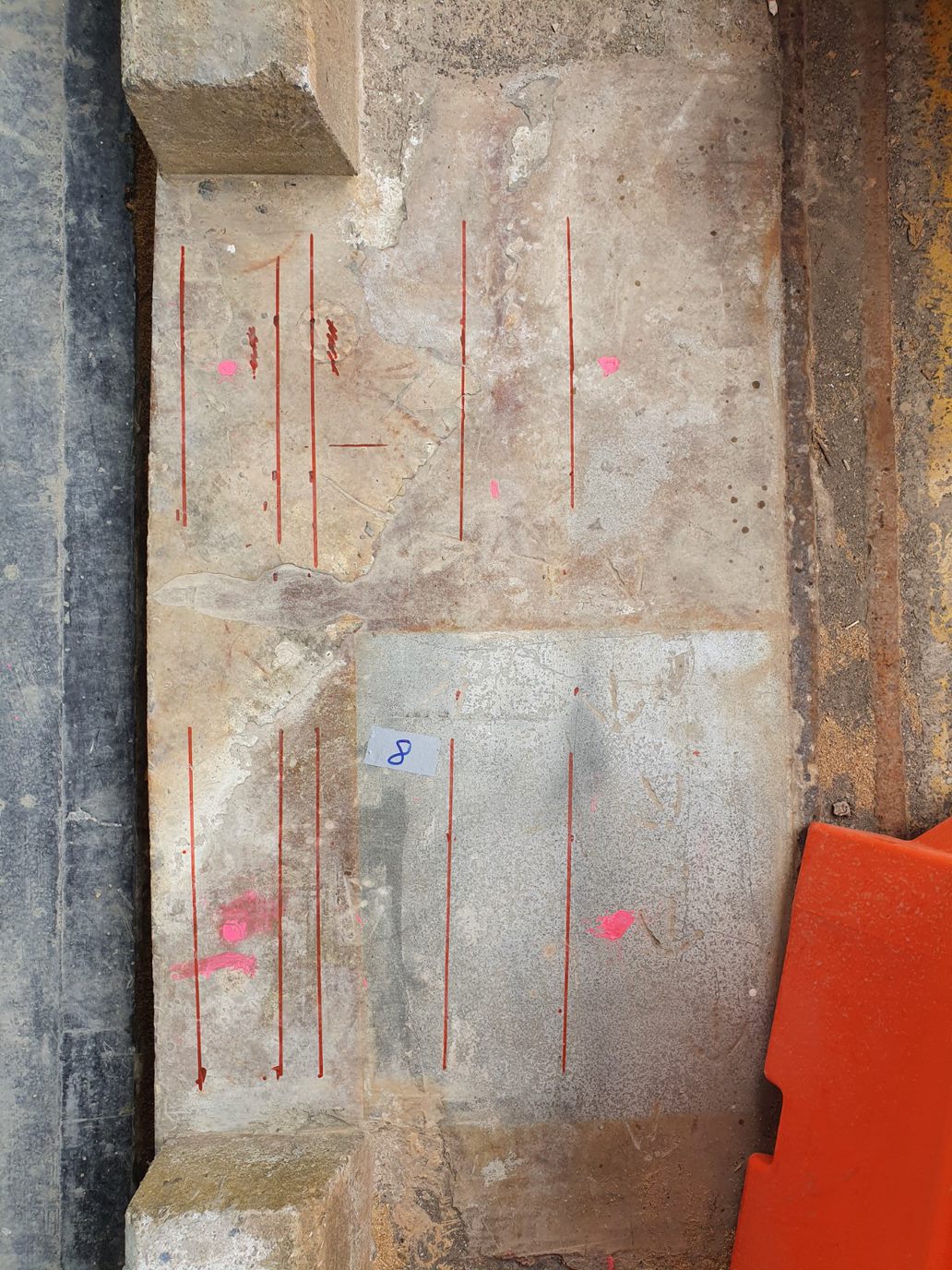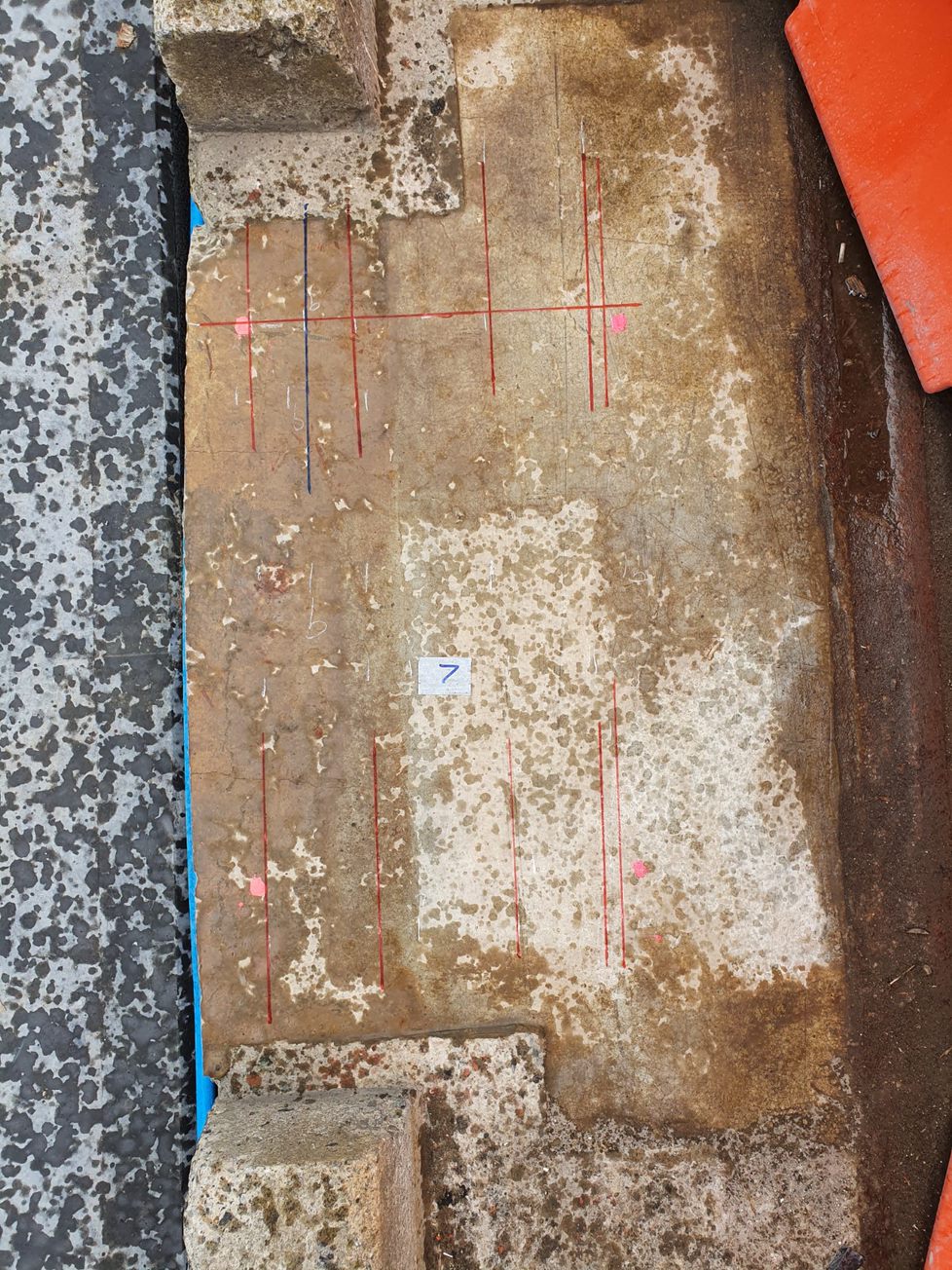CSI recently worked at Auckland's Queens Wharf, conducting an on-site analysis and scanning of new bollards to ensure the anchors would have the best chance of missing the original reinforcing.
As part of the Queens wharf upgrade, the old wharf-edge bollards were to be replaced. As it is a historical wharf, care must be taken to inflict as little damage as possible to the existing structure. For this reason, anchoring for the new bollards must miss the original reinforcing in the wharf slab.


CSI was requested to undertake the scanning for the new bollards to ensure the anchors would have the best chance of missing the original reinforcing. The chosen approach was to conduct onsite analysis in some locations of interest to understand the reinforcing detail, and to then continue with freehand scanning to increase speed. This approach worked remarkably well, allowing all fifteen locations to be marked-out within a day.
Digital analysis will give the greatest accuracy while freehand scanning provides the fastest mark-out of reinforcing. Merging the two techniques allowed the technicians to ensure they understood the reinforcing detail within the concrete, allowing for the most efficient scanning approach.